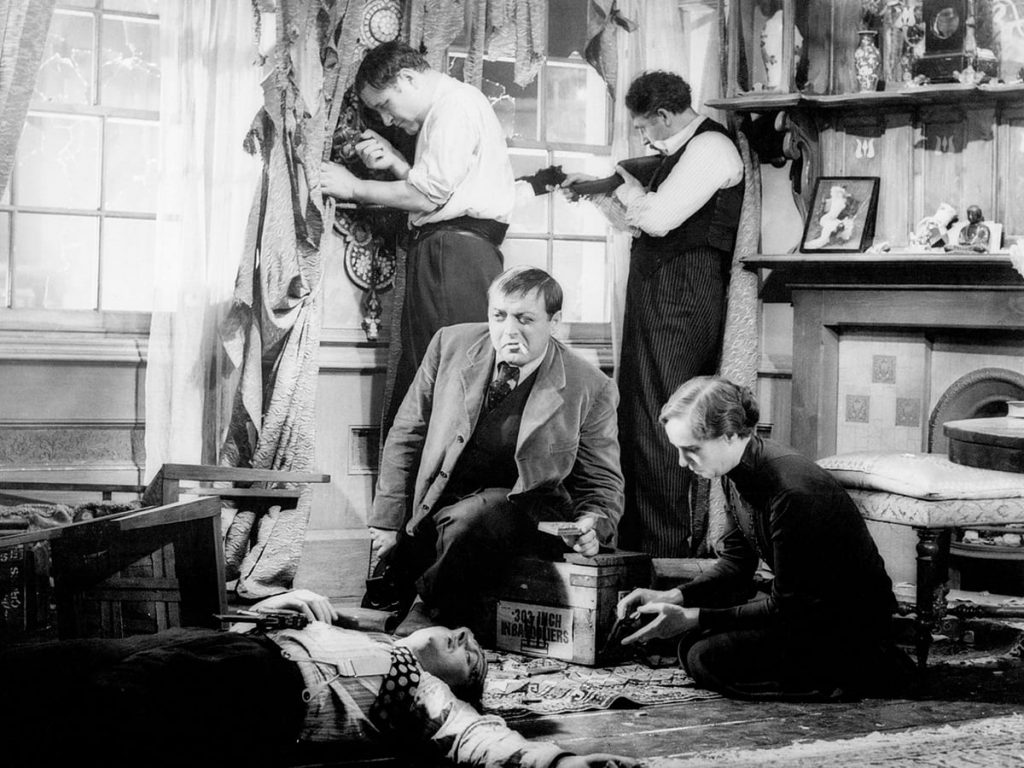Film Review: The Man Who Knew Too Much (1934)



In 1967, Alfred Hitchcock told François Truffaut that his 1934 production of The Man Who Knew Too Much was “the work of a talented amateur,” while the director’s own 1956 remake “was made by a professional.” Whether or not this is true may lie in one’s connection to or admiration for Hitchcock’s British versus American periods. Arguments can, and have been made for the superiority of both films but one thing is certain: the remake doesn’t star one of my favorite actors of all time.

Yes, I am a devoted Peter Lorre mark. I make no secret of it and offer no apologies. You’d be hard-pressed to find a better villainous weasel than Peter Lorre, and even though he remained typecast for most of his career, what a type to cast. Together with Toshiro Mifune and Warren Oates, Lorre completes the holy trinity of underappreciated actors. Three cheers for Peter Lorre.

Legend has it, the Hungarian-born actor had to learn his lines phonetically, as he had only recently fled Nazi Germany and had not yet learned English. Hitchcock cast him on the strength of his role in Fritz Lang’s 1931 German masterpiece M, in which he played a child serial killer. While The Man Who Knew Too Much might not pack the psychological punch of Lang’s film, Lorre cements his devious persona with a performance that is both cruel and comedic.

Watch the shootout scene at the end of the film. Lorre’s calm and collected, almost nonchalant attitude toward his surroundings is so marvelously entertaining one forgets the implausibility of the situation. As thousands of bullets fly, shattering glass and wood everywhere, Lorre cooly smokes and reloads, a shock of white hair clinging to his scarred forehead. He casually fires a few potshots at police from time to time as dozens of onlookers gawk at the raging gun battle. Bodies fall on both sides but nobody seems to mind much. The scene has no score, but the sound of gunshots soon becomes a rhythmic pulse that accentuates the incredible circumstances, and somehow justifies some of the more unbelievable moments.

Lorre might steal the show, but The Man Who Knew Too Much is more than an opportunity for him to chew the scenery with his trademark sneers and melancholic viciousness. It also happens to be an engaging romp through kidnappings, mad dentists, chair fights, weird cults, and political assassinations, with just enough smart comedy to make some of these seemingly disparate elements delightfully coalesce. It’s a stacked deck that risks toppling over at any moment – and hell, maybe it does from time to time – but I’ll be damned if it isn’t a fun ride, eccentricities and all.
United Kingdom • 1934 • 75 minutes • Black & White • 1.33:1 • English • Spine #643
- New digital restoration, with uncompressed monaural soundtrack on the Blu-ray edition
- New audio commentary featuring film historian Philip Kemp
- New interview with filmmaker Guillermo del Toro
- The Illustrated Hitchcock, an extensive interview with director Alfred Hitchcock from 1972, conducted by journalist Pia Lindstrom and film historian William K. Everson
- Audio excerpts from filmmaker François Truffaut’s legendary 1962 interviews with Hitchcock
- Restoration demonstration
- English subtitles for the deaf and hard of hearing
- PLUS: A booklet featuring a new essay by critic Farran Smith Nehme
